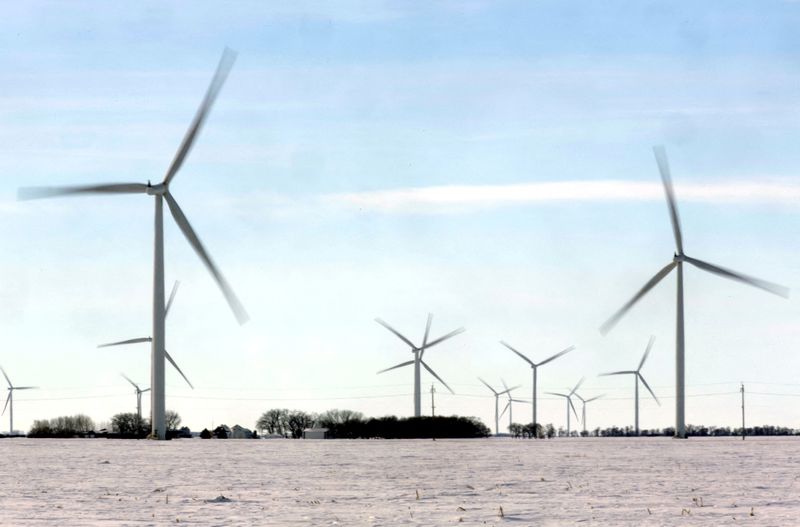By Steve Scherer
OTTAWA (Reuters) - Canada on Tuesday sought to close competitive gaps with United States with a budget aimed at attracting investment in the low-carbon economy, including tax incentives for electric-vehicle (EV) manufacturers and expanding the electricity grid.
The 2023-2024 fiscal document, delivered to the House of Commons, also has a "grocery rebate" for 11 million low-income Canadians, an expansion of dental care to households, and investments in healthcare announced earlier this year.
The small New Democrat Party, whose support keeps Prime Minister Justin Trudeau's minority government in power, in a statement welcomed the grocery rebate and dental care measures.
The United States passed massive uncapped incentives for clean energy investments in the Inflation Reduction Act (IRA) last year that experts say may be worth more than $1 trillion, putting pressure on Canada to level the playing field with its largest trade partner.
"Our friends and partners around the world - chief among them the United States - are investing heavily to build clean economies and the net-zero industries of tomorrow," Finance Minister Chrystia Freeland said in the House.
"Canada must either meet this historic moment - this remarkable opportunity before us - or we will be left behind."
Growth and a "shallow" recession is expected this year, and inflation still exceeds 5% after eight interest rate hikes in the past year. Before the budget, Freeland repeatedly said she did not want to make the central bank's job harder and that the budget would be fiscally prudent.
"It would be challenge to characterize this budget as being prudent," said Randall Bartlett, senior director of Canadian economics at Desjardins Group. "There is significant new spending, with larger deficits and a rising debt-to-GDP ratio into next year."
The budget includes net new policy actions totaling C$43 billion for the period from the fall of 2022 to end-March 2028, which Bartlett said takes into account about C$18.6 billion in new tax revenue and planned savings over the same period.
Federal debt as a percentage of gross domestic product (GDP) will rise next year to 43.5%, to then gradually fall to below 40% by 2027-2028. The deficit will no longer be erased over the next five years, as had been foreseen in the fall, but will reach 0.4% of GDP by 2028.
TAX INCENTIVES
The U.S. IRA uses uncapped production tax incentives, which pay for operational costs. Canada's budget instead introduces a series of new investment tax credits for capital expenditure worth an estimated C$35 billion, said Michael Bernstein, executive director of climate think-tank Clean Prosperity.
"What we don't have is a systematic leveling up of the playing field" with the United States, Bernstein said. "What we have is a helpful step forward."
One of the biggest new investments is a tax credit that covers 15% of the cost of equipment used to produce and transmit clean electricity. Canada estimates it must double the capacity of its grid by 2050, and the measure is seen costing C$25.7 billion starting next year through 2035.
There is also an investment tax credit for 30% of the costs of machinery and equipment used to manufacture clean technologies, including for extracting and processing key critical minerals and any machinery needed to produce EVs, as first reported by Reuters last week.
Canada will set up a growth fund, or a public investment vehicle, that will manage a system of contracts meant to fix in the future value of carbon or hydrogen, known as contracts for difference, and de-risk major projects, a measure first reported by Reuters on Monday.

On the tax side, Ottawa is raising the minimum tax on wealthy Canadians to 20.5% from 15% previously.
The budget also includes a previously-announced tax on share buybacks that will be applied from January next year and a hydrogen investment tax credit.